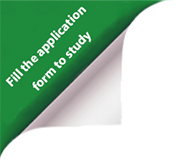| Project name | Modelling cross-sectoral cascading climate impacts on Europe to design coherent policy reponse |
| Acronym | CROSS-CASCADE |
| Project coordinator | Potsdam Institute for Climate Impact Research (PIK) |
| Project partner | Czech University of Life Science, Prague – Faculty of Forestry and Wood Sciences |
| Investigator | MSc. Laura Dobor Ph.D. |
| Datum realizace projektu | 03/10/2025 – 02/10/2029 |
| Name of programme | COST Action |
| More information: | Project website |
Traditional climate impact studies have focused on biophysical impacts emerging in one place, e.g. drought affecting crop yields in one region. However, climate impacts can also spread from their origin across borders into other countries through trade and supply chains, financial flows or migration. To understand these cascading climate impacts on Europe and to develop coherent response policies, the chains through which impacts are transmitted need to be considered, e.g., changing crop yields affecting exports and prices which in turn affect security and migration in importing countries. Research on such cascading climate impacts is fragmented since the individual research communities related to impact transmission chains such as trade or migration have historically been separated and only recently started including biophysical climate impact data and models. Therefore, CROSS-CASCADE aims to develop common protocols, harmonised datasets and a joint understanding of how to conduct cross-sectoral, multi-model climate impact studies at regional and global scales that cover both initial biophysical impacts and impact transmission chains to foster projections of cascading climate impacts affecting Europe and to develop coherent policies for adapting to them. The Action will focus on key interactions of climate impacts, especially extreme events such as droughts or floods, across sectors and their propagation through trade, finance, migration and other impact transmission chains. CROSS-CASCADE will use COST networking instruments to train young researchers to conduct cross-sectoral cascading climate impact simulations, use novel methods for analysing them and to disseminate the data, code and results to scientists and stakeholders.

